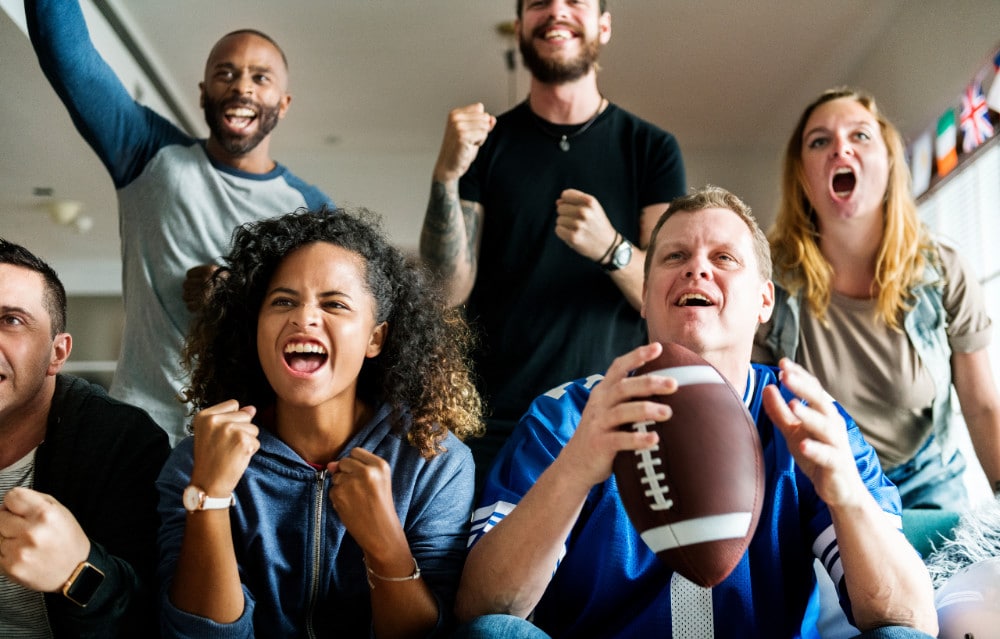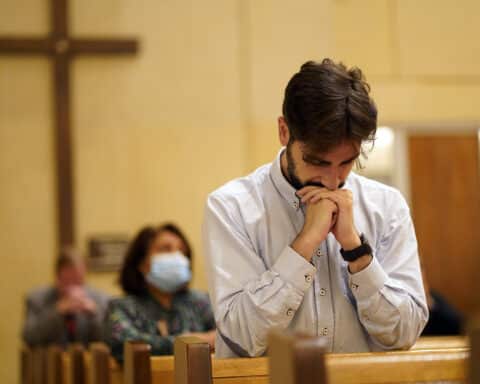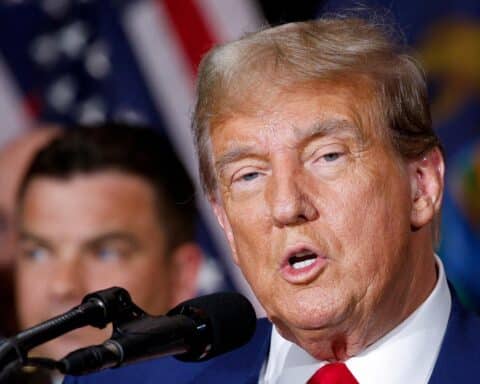Across the United States each year, friends and families gather in rec rooms, basements and pubs for the annual public liturgy of watching the Super Bowl. While, of course, viewership is highest in those regions represented by the last two teams standing, the Super Bowl consistently receives among the highest ratings of any televised event of the year throughout the country. But these gatherings to watch the game can be a mixed blessing.
On the one hand, they are opportunities for comradery and solidarity. Our Super Bowl assemblies are held together by bonds of friendship that transcend personality, politics or other divisive characteristics. Especially for residents of the two cities represented in the game, perhaps no other single day unites us like the Super Bowl. We come together as a unified community, joined by devotion to our team. The various groups in which varieties of people gather are symbols of that solidarity.
On the other hand, however, Super Bowl parties often turn into a distraction from the game. How often do those who really want to watch the game slink off to another room to watch on a second TV or their smartphone or tablet? The parties are fun, but they are often a disruption from attending to the action on the field. The anticipation of pre-advertised advertisements is part of the ritual, for example. Many people at our parties are really there for the latest chips, soda, beer or car advertisement. The actual game is the time to chat and socialize (often loudly) between commercials. Similarly, for many, the halftime show is the real event. The first half of the game is little more than a prelude to the more compelling performance of a nostalgic musical act. The second half is irrelevant.
This list of impediments to our enjoyment of the Super Bowl in gatherings is a proxy for larger issues related to watching football — and sports more generally. Enjoyment of sporting events, both as participants and observers, can be included in any list of leisurely cultural engagements that may be incorporated in a fulfilled and joyous life. While tastes and priorities may vary, enjoyment of athletic contests is not different in kind from enjoyment of other leisurely pursuits. Of course, some pursuits cannot be ordered toward the good, per se — for example, pornography. But leisurely pastimes that do not fall into that category may be enjoyed, provided that the intention of the agent and the circumstances are both in conformity with the good. But the intention and circumstance are not trivial matters.
For example, a nonbenign distraction from watching the Super Bowl may be the rise of ubiquitous gambling on the game. For many people, the outcome of the contest is completely irrelevant, except as to how it affects their bets. And it is not only about which team wins or loses, but whether the winning team covers the spread. Additionally, prop bets on even the most minute aspect of the game distract from its enjoyment and open it to manipulation. I have written in this space before that sports gambling is not necessarily a bad thing. But when betting becomes obsessive for the bettor or a distraction to others, it certainly may have a deleterious effect on the broader purpose of sport, such as enjoyment of the athleticism and celebration of the discipline of the athletes.
Another example of the possible misuse of sport that distracts from its enjoyment is its politicization. While the National Football League is not as aggressive and intrusive as other professional leagues, it still cannot resist the temptation to insert politics into the literal fabric of the game. For example, one sideline hat option is a team logo surrounded by the words, “Opportunity, Equity, Freedom, Justice.” Of course, properly understood, all of these are principles that any morally conscientious person will embrace. But in the conflicts that characterize American public life, it is not clear what any of these words are meant to convey. Fraught with the same ambiguity of the public disputes they signify, these symbols are more likely to arouse division and conflict than unity and peace.
Similarly, players have the option of displaying any of seven slogans on the back of their helmets, including, for example, “Choose Love,” “Stop Hate,” and “Black Lives Matter.” Of course, everyone should choose love and stop hate. But “Black Lives Matter” is the name of a highly divisive organization with a toxic political agenda. Yes, Black lives matter, but the “Black Lives Matter” organization is not an organization that the NFL has any legitimate stake in promoting. On the contrary, much of its agenda should be condemned. The solution, of course, is to eliminate this moral and political posturing from the game. When even such benign phrases as “It Takes All of Us” are charged with subtle, divisive connotations, the better option is to eschew them altogether for the good of the sport.
Finally, while injuries are a hazard of any athletic endeavor, football is unique among team sports in exposing its players to physical harm as a normal part of the game. Among major sports in the United States, only in football is the object of the game to inflict violence on the opposing player. One can argue that the object of the offensive team is to advance the ball, not to cause violence. But the object of the defense is to stop advancement of the ball by stopping the person carrying it through a violent tackle. This point was made especially acute recently when Buffalo Bills safety Damar Hamlin suffered a near fatal heart attack performing a routine tackle, which was less violent than numerous tackles in every NFL game.
We accept this regulated violence — again, unique to football among team sports in the U.S. — as part of the game. And the NFL is constantly revising its rules and equipment to mitigate the risk of injury. But by the very nature of football, the probability of more frequent and more serious injuries will always be higher than in, say, baseball, basketball or hockey. As a football fan, I never want to see a player injured. I support measures that lessen the likelihood of injuries, such as, for example, minimizing the probability of kickoff or punt returns by liberalizing fair-catch and touchback rules. While we cannot eliminate the inherent risk, we should advocate for regulations and rules that will lessen the likelihood of injury.
I don’t want to be misunderstood, or labeled a scold. I’ll be watching the Super Bowl with a group of family like so many tens of millions of other Americans. But we can enhance the enjoyment of the game to the extent we strip it of those extraneous distractions that tend to cause more annoyance than pleasure, both in immediate and more remote ways.
Kenneth Craycraft is a columnist for Our Sunday Visitor and an associate professor of moral theology at Mount St. Mary’s Seminary and School of Theology in Cincinnati. Follow him on Twitter @krcraycraft.





